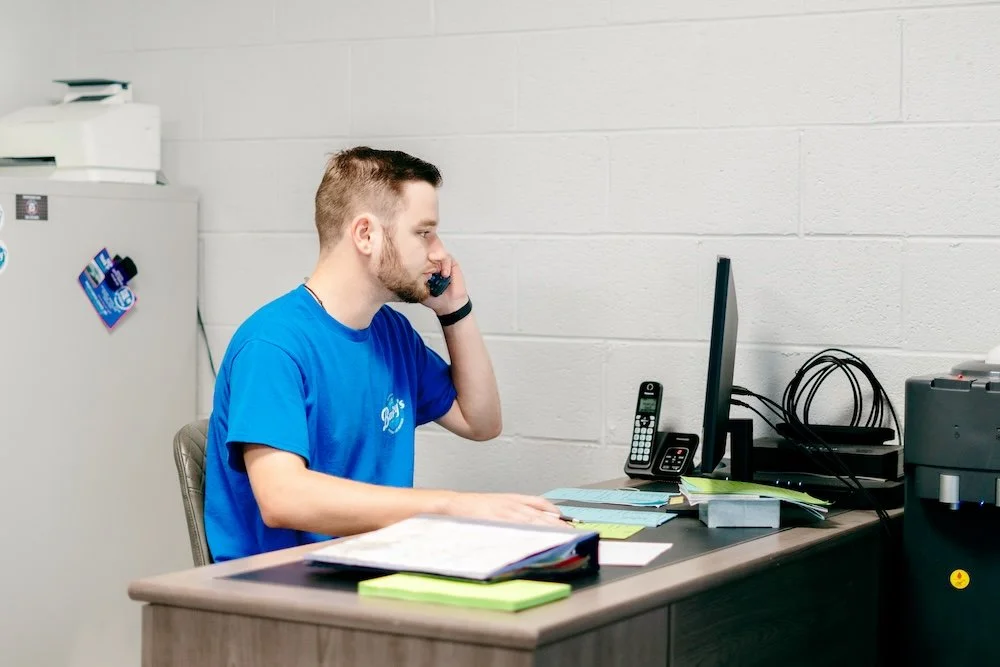Signs Your Septic System Is Failing (Don’t Ignore These Red Flags)
Your septic system works quietly underground, but when something goes wrong it can create messy, costly, and unhealthy problems. The best way to avoid major repairs is to catch issues early. Knowing the most common warning signs allows you to take action before small problems become expensive emergencies.
Slow Drains Throughout the House
One slow sink might simply be a clogged drain, but when sinks, tubs, and toilets across your home begin to drain slowly, it’s a different story. System-wide slow draining often indicates that your septic tank is full or that waste is not moving through the drain field properly.
If plunging or basic cleaning does not fix the problem, call a septic professional. Waiting can lead to complete backups or damage to your drain field.
Gurgling Sounds in Pipes
Hearing gurgling noises after flushing the toilet or running water can mean air is trapped in your plumbing. This sometimes occurs when the septic tank is over capacity or when pipes leading to the tank are blocked. Continuous gurgling is a clear sign that your system needs inspection and possibly pumping.
Sewage Odors Indoors or Outdoors
Strong sewage odors inside or around your home should never be ignored. These smells often signal that waste is not staying sealed inside the tank. The problem may stem from a full tank, a damaged baffle, or a crack in the system. Acting quickly protects your property and prevents contamination of surrounding soil and groundwater.
Wet Spots or Lush Grass Over the Drain Field
Keep an eye on your yard, especially the area above your septic drain field. Wet spots, standing water, or grass that is unusually green and thick can mean wastewater is surfacing. This is a serious sign of an unsatisfactory drain field or a tank that is overflowing. Avoid walking on this area until a professional can inspect the system.
Frequent Backups or Overflows
If wastewater backs up into sinks, showers, or toilets, the septic system may have reached its limit or the pipes may be blocked. Backups can create health hazards and lead to costly repairs inside your home. Professional pumping or system repairs are typically required when this happens.
Septic Alarm Going Off
Some modern septic systems include warning alarms that detect high water levels. If your alarm sounds, treat it as an urgent problem. It could mean the pump is malfunctioning or that the tank is nearing capacity. Do not wait to call a septic service provider.
Factors That Can Cause Septic System Failure
Several conditions can push a healthy system toward failure. Overloading the system with too much water in a short time can stir up solids and clog pipes. Flushing non-biodegradable items like wipes, paper towels, or feminine products creates blockages. Excessive use of garbage disposals adds more solids than the system is designed to handle.
Regular septic tank pumping every 2 to 3 years, as Bailey’s Septic recommends, is key to preventing these problems.
Why Prompt Action Is Important
Delaying service when these warning signs appear can lead to widespread contamination, damage to your drain field, and costly system replacements. Acting quickly also protects nearby wells and groundwater from bacteria and nitrates that can harm your family and neighbors.
What to Do if You Suspect a Problem
Call a professional – Contact Bailey’s Septic for a thorough septic inspection in Berks and septic pumping if needed.
Limit water usage – Reduce laundry loads, shorten showers, and postpone heavy water use until the system is inspected.
Avoid digging or driving over the drain field – Extra weight can damage underground pipes and soil structure.
Keep records – Note when you first noticed symptoms and any changes, which helps technicians diagnose issues.
Protect Your Septic System with Bailey’s Septic
For 90 years, Bailey’s Septic has helped Berks County homeowners keep their septic systems operating reliably. From routine pumping to emergency service, our experienced team can identify problems quickly and recommend the right solutions.
Whether you are noticing slow drains, foul odors, or pooling water, do not ignore these red flags. Early action protects your property, saves money, and keeps your system running for years to come.


